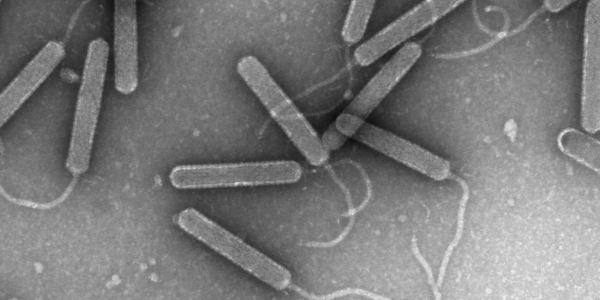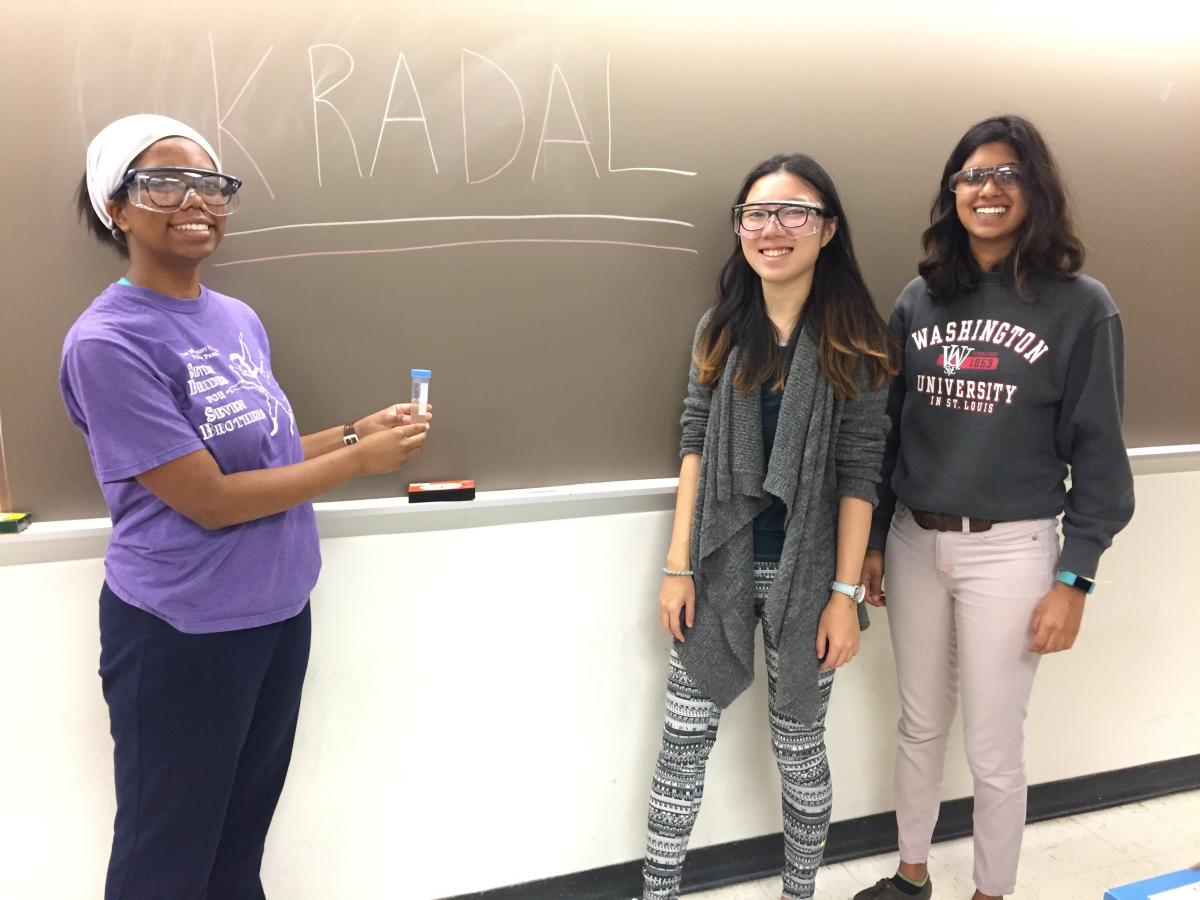Dive into research your first year
How do you know how much you like something if you have never tried it? This course gives students the opportunity to really do research from the first day of their college career in a more nurturing environment. This two-semester program is a unique chance to do real research as a first-year student. Once you've learned the parameters of the research, the bulk of the time in class is spent doing a year-long experiment. You will find your own starting material for the experiment (a bacteriophage [virus] from soil collected at the start of the semester), and will be guided through the process of analyzing the physical phage structure (fall semester) and details of the phage genome (spring semester). Many students who have taken the course have had their findings published. Proof that we are doing real research!
Whether you discover that you love doing research, or that it isn't for you, this course will let you get your first experience in doing biology research to guide your future career choices. You will gain confidence in your ability to understand and do research, which should lead to confidence with upper-level science courses and later research opportunities.






